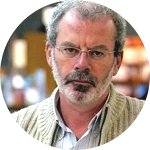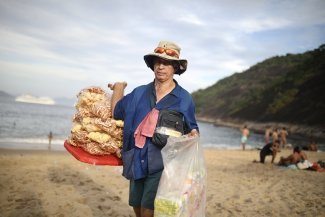Despite the steady flow of war reports from the Defence Ministry of the Sahrawi Arab Democratic Republic (SADR), there is no indication that the Sahrawis have made even the slightest advance in their plan to achieve sovereignty. Rabat, in the meantime, is continuing to score points in its overt bid to gain total control of Western Sahara, tipping the balance ever more clearly in its favour, exploiting its obvious advantage in terms of troops on the ground and the growing support it is garnering from the international community for its plans to bring the territory under Moroccan sovereignty.
A good illustration of its military superiority can be found in the operation to clear the Guerguerat pass, the only land route connecting Morocco and Mauritania, which Sahrawi civilians had been blocking since 21 October, preventing the overland passage of goods and people in an attempt to attract the attention of an international community with an ever-waning interest in ensuring the implementation of the 1991 peace plan (including the endlessly delayed referendum on self-determination). And, like so many times before, the operation carried out by Morocco’s Royal Armed Forces (FAR) to clear the pass on 13 November met with no real opposition from the extremely weakened troops of the Sahrawi People’s Liberation Army (SPLA). And whilst it is true that Morocco’s intervention constitutes a violation of the ceasefire decreed in 1991 and has given the Polisario Front a sense of justification for returning to “all-out war” against its chief enemy, it is also true that its over-publicised ‘war reports’ are worth little more than the paper they are written on.
It is, in fact, Rabat, thanks to a system of walls stretching over 2,700 km (covering 80 per cent of the so-called useful Sahara), that has virtually total control over what happens across 240,000 square kilometres of the territory, benefiting from the exploitation of both its phosphates and its rich fishing grounds.
And in view of Morocco’s overwhelming military superiority, with no less than 100,000 troops permanently deployed in the area, the greatly diminished Sahrawi troops, as a result of the SADR’s very limited economic resources, are not in a position to change the situation to their advantage. Its army simply does not have the means to consider an all-out war, be it in the form of conventional warfare or even asymmetrical warfare, of any shape or form.
The UN and the countries within the ‘Group of Friends’ (USA, Russia, United Kingdom, France and Spain) have long given up on jeopardising their ties with Rabat for the sake of the Sahrawis.
Thanks to a well-calculated move in its own best interest, Rabat has emerged (including for Spain, ‘administering power’ of the SADR) as a key partner in the fight against Islamist terrorism, drug trafficking and population flows. And it has used this leverage not only to systematically prevent a referendum in Western Sahara but also to secure acceptance of “a settlement between the parties” as a means of ending the conflict, irrespective of international law, under which the Sahrawi people have a recognised right to self-determination. Rabat has likewise managed to prevent any mention of human rights monitoring as part of the remit of the United Nations Mission for the Referendum in Western Sahara (MINURSO) – along with the task of monitoring the ceasefire and facilitating the holding of the referendum – in a further demonstration of its ability to establish terms of reference in keeping with its vision of the ‘Southern Provinces’ as a territory under Moroccan sovereignty with an as-yet-to-be-determined degree of administrative decentralisation.
The need to break the cycle of violence is urgent, but the will is not there
And as if that were not enough, the year ended with Washington’s extraordinary gift to Mohammed VI, definitively recognising Morocco’s sovereignty over the disputed territory. It was a gesture that caused little surprise, having already seen other countries agreeing to recognise Israel in exchange for trades that serve their greater interests, such as security guarantees from Washington and the sophisticated F-35 fighter jets, in the case of Abu Dhabi, or removal from the list of countries promoting terrorism for Khartoum. And it is very obvious that the players involved in these murky deals have little concern for the contempt they show for the UN and international law, not to mention the Palestinians.
For Morocco, (whose monarch is president of the Al Quds Committee, established over 50 years ago by the Organization of the Islamic Conference as an additional body for defending the Palestinian cause, and on which 15 Muslim countries are represented) official rather than just de facto control over the occupied Sahara is a national priority. It therefore had no qualms about recognising Israel in return for the gesture made by Trump, irrespective of the clearly pro-Palestine public opinion in Morocco, which is also aware of the great difficulty President Joe Biden would have in reversing a decision that would represent a blow to the United States’ closest ally in the Middle East.
Seen from this perspective, recognising Israel is an acceptable trade-off, as Rabat is expected to further strengthen the links it has had with Washington for decades, being seen (along with Spain) as a guardian of the Strait of Gibraltar. These links are becoming increasingly obvious in the military field, with Morocco’s recent acquisitions of F-16 fighters, M1 Abrams tanks, TOW anti-tank missiles, Apache attack helicopters, MQ-9 Reaper drones and various cannons, rockets and missiles (including the Harpoon Block II). And although it is widely accepted that this spectacular rearmament is the result of the long-standing rivalry with an Algeria that is also striving to score points as a regional leader, many questions remain as to how an economy in crisis, such as Morocco’s, is able to finance this spending.
The SADR, in the meantime, has been losing support on the international stage to the point that it is now virtually on its own. Of the 82 countries that recognised it in the 1990s, no more than 30 still maintain this position in concrete terms and Morocco’s accession to the African Union (it was the only country on the sidelines until 2017) can only be interpreted as a further sign of the country’s growing weight on the continent.
The decision of the United Arab Emirates to open a consulate in Laayoune and the immediate condemnation of the Polisarios’ armed response by Saudi Arabia, Bahrain, Egypt, the United States, Jordan, Kuwait, Oman, Qatar and Yemen can be interpreted in the same way. The rest of the international community (including Algeria and Spain) has limited itself to expressing concern and making the usual calls for restraint.
The situation has left the Sahrawis – well aware of their abandonment, and not only those living in the Moroccan-occupied territory but also, and even more so, those living in the Algerian hamada of Tindouf – openly critical of their own leaders and with a sense of despair that is hard to manage.
The fact that, as so often before, Spain is looking the other way and limiting its response to repeated calls for restraint is not only a clear sign of the advantage Morocco enjoys, but also that international relations are not guided by the defence of international law and human rights. Unfortunately, it only remains to be seen how much longer a people with proven resilience will hold out in the Algerian hamada until they realise that all hope of having a state of their own has been shattered.
That is why it is urgent that the current cycle of violence be broken before we see a return to senseless deaths. Unfortunately, neither has the UN – which has not had a special envoy since May 2019 – dared to assess what has happened so far on the basis of what MINURSO has observed on the ground, nor has Spain departed from its usual script, which is increasingly slanted in favour of Rabat, nor does the rest of the international community seem inclined to take action.









